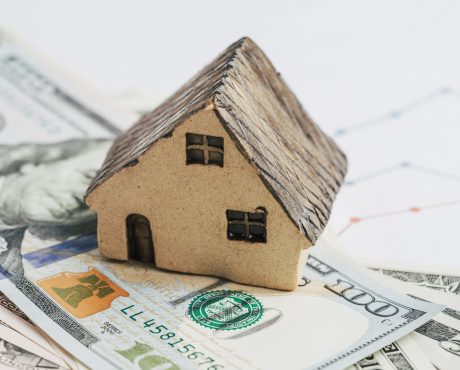A High-Yield Dividend Growth Opportunity
In today’s market, high-yield stocks are not known for providing much in terms of dividend growth. The reason is simple: if a company offers both a high yield and dividend growth potential, investors who rush toward it, bidding up its price, and lowering the yield.
And that’s why Starwood Property Trust, Inc. (NYSE:STWD) is special. The company not only pays generous dividends with a yield higher than the vast majority of stocks today, but is well-positioned to grow its payout. Let me explain.
Headquartered in Greenwich, Connecticut, Starwood Property Trust is in the real estate business. To be more specific, the company focuses on originating, acquiring, financing, and managing commercial mortgage loans. As of December 31, 2017, Starwood Property Trust’s lending segment consists of 96 loans totaling $7.0 billion. It has a targeted levered internal rate of return (IRR), an estimate of the profitability of an investment, of between 10% and 13%. (Source: “Investor Presentation,” Starwood Property Trust, Inc., last accessed April 18, 2018.)
Because borrowers have to make mortgage payments every month, lenders like Starwood Property Trust can earn a steady stream of income. And since the company is structured as a real estate investment trust, it must return at least 90% of its profits to shareholders in the form of regular dividend payments.
Right now, Starwood Property Trust pays quarterly dividends of $0.48 per share, which, at the current price, translates to an annual yield of 9.2%.
Of course, due to what happened in the last financial crisis, a high-yield stock in the mortgage industry may not seem like a safe bet. But if you take a closer look at the company’s business, you’d see that the payout is not only safe, but also actually has plenty of room to grow.
In the fourth quarter of 2017, Starwood Property Trust generated core earnings of $144.7 million, or $0.55 per diluted share. This was more than enough to cover its quarterly dividend rate of $0.48 per share. (Source: “Starwood Property Trust Reports Results for the Quarter and Year Ended December 31, 2017,” Starwood Property Trust, Inc., February 28, 2018.)
In full-year 2017, Starwood Property Trust’s core earnings totaled $584.2 million, or $2.33 per diluted share. Again, this provided ample coverage of the $1.92 of dividends per share it declared during this period.
The company is also set to capitalize on the rising interest rate environment. Among Starwood’s $7.0-billion lending portfolio, around 93% of the loans bear interest at floating rates and are indexed to the London Interbank Offered Rate (LIBOR), a benchmark rate at which banks lend to each other. So if interest rates go up, the company will likely earn higher interest income from its portfolio.
But what about the company’s own borrowings? Well, whenever Starwood Property Trust has fixed-rate loans financed using floating rate liabilities, 100% of its floating rate exposure is hedge back to fixed. In fact, management estimated that a 100-basis-point increase in LIBOR would allow the company to earn an extra $0.07 per share of cash flow annually.
Since 2015, the U.S. Federal Reserve has raised its benchmark interest rates on six different occasions and is currently signaling two more rate hikes for the rest of the year. If the Fed follows through on that plan, it would boost the interest income of Starwood Property Trust, which could in turn translate to higher dividends.
Mind you, lending is just a part of Starwood Property Trust’s business. The company also has an investing and servicing segment. A mortgage servicer usually services loans for other investors by collecting payments, calculating interest rates, and taking care of taxes and insurance from borrower escrow accounts. But Starwood is not the average mortgage servicer. Instead, it is a leading special servicer, which handles the default side of loan servicing.
The business is huge. Starwood is named as the special servicer on 160 trusts with a collateral balance of $73.0 billion. That makes it the largest commercial mortgage-backed security special servicer in the country.
Servicing loans when they go into default may not seem that exciting, but this segment complements Starwood’s other businesses. When credit deteriorates and default rates go up, Starwood’s lending segment may take a hit, but its special servicing segment could get more business. In other words, the company’s special servicer segment provides a natural hedge against credit deterioration.
Last but certainly not least, Starwood also owns physical real estate. The segment consists of 113 properties with a weighted average occupancy rate of 97.8%. This provides another source of stable income for the mortgage REIT.
For investors looking for oversized dividends that can also grow over time, STWD stock should be near the top of their watchlists.
